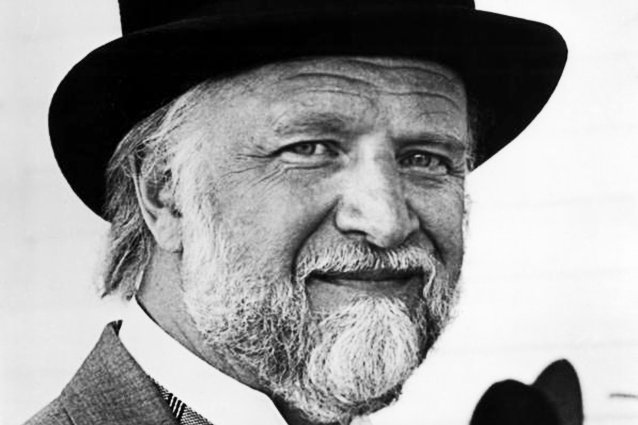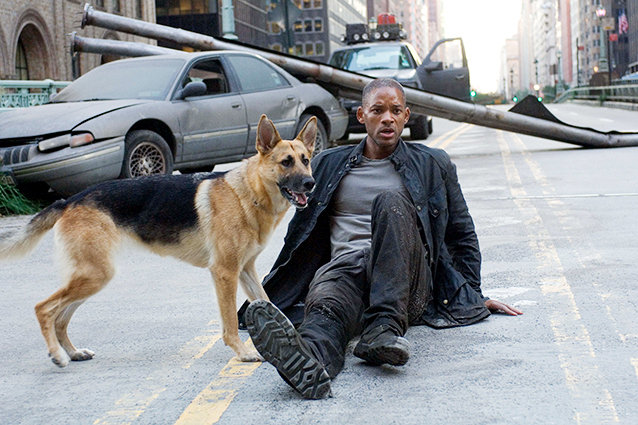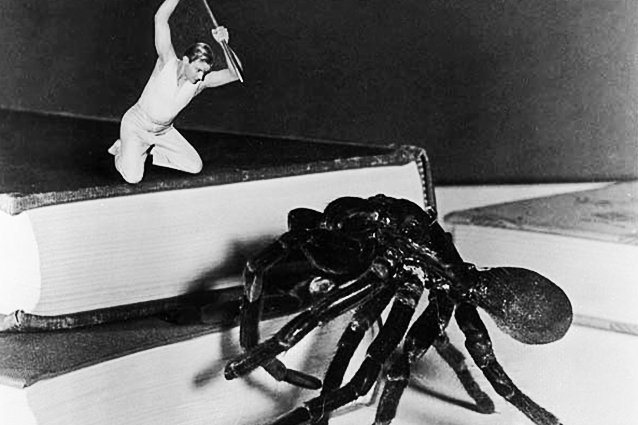
Sci-fi legend Richard Matheson, whose 1954 novel I Am Legend helped kick off the apocalyptic science fiction now in vogue with movies like World War Z, Oblivion, and Will Smith’s own 2007 I Am Legend film adaptation, has died. He was 87.
Stephen King, who dedicated his apocalyptic 2006 novel Cell to Matheson, once wrote, “Without Richard Matheson I wouldn’t be around.” Though there had been “end of the world” or “last man standing” visions in sci-fi before I Am Legend — most notably H.G. Wells’ War of the Worlds — Matheson rooted his stories in very real-world situations. His characters are common men from ordinary neighborhoods who are confronted with extraordinary, life-altering circumstances over which they have absolutely no control. I Am Legend imagines the last survivor of a war against humanity led by the undead: proto-zombies who actually come across more like blood-sucking vampires. Published in 1954 at the height of Nuclear Age fears about “The Bomb,” it imagined the tenacity of one person to survive against implacable odds through skill and luck, even if he’s essentially doomed, subject to whims of contingency and fate. With Will Smith in the lead role, it became a blockbuster smash in 2007, grossing more than $585 million worldwide.

But I Am Legend’s influence on the modern zombie genre is its greatest legacy. George A. Romero candidly admits that his 1968 Night of the Living Dead was inspired by Matheson’s novel. And now, once again, this time with economic collapse, we’ve come to feel we’ve lost control of our lives due to circumstances beyond our making. No wonder movies and TV shows that capture our collective powerlessness, yet offer glimmers of hope, like World War Z and The Walking Dead, are smash hits.

What was so powerful about Matheson’s vision, though, was that it could be as intimate as it was epic. I Am Legend imagines a global extinction event. But his 1956 novel The Shrinking Man, turned into the 1957 film The Incredible Shrinking Man, one of the greatest sci-fi films ever made, imagines the world of just one individual coming to an end. A blast of nuclear radiation causes a family man to start mysteriously shrinking. He has to take up residence in a dollhouse, is menaced by the family cat, and, in its most iconic moment, chased by a tarantula. Matheson’s short story “Duel,” about a motorist pursued relentlessly by a faceless truck driver, became the basis for Steven Spielberg’s famous 1971 TV movie. He himself wrote the script.
That theme of one man’s life coming to a stand-still because of something totally out of the blue also led Matheson to write the script for one of the most famous Twilight Zone episodes ever, “Nightmare at 20,000 Feet,” in which William Shatner plays an airplane passenger who starts seeing gremlins on the jet’s wing and slowly has a nervous breakdown.
Though his stories are bleak on the surface, Matheson suggested that we can discover ourselves and our place in the universe even in the midst of unspeakable terror. With his passing, it helps to remember the closing monologue he wrote for The Incredible Shrinking Man, in which the titular character is on the verge of shrinking into nothingness, yet also infinity: “So close, the infinitesimal and the infinite … but suddenly I knew they were really the two ends of the same concept. The unbelievably small and the unbelievably vast eventually meet, like the closing of a gigantic circle. I looked up as if somehow I would grasp the heavens, the universe, worlds beyond number, God’s silver tapestry spread across the night …. All this vast majesty of Creation, it had to mean something. And then I meant something too. Yes, smaller than the smallest, I meant something too. To God, there is no zero. I still exist.”
Follow Christian Blauvelt on Twitter @Ctblauvelt | Follow Hollywood.com on Twitter @Hollywood_com
More:
Ray Bradbury Dies at 91: Remembering a Sci-Fi Legend
A Tribute to the Late Chinua Achebe
Ruth Prawer Jhabvala Dies: Remembering the Literate Heart of Merchant/Ivory
From Our Partners Stars Pose Naked for ‘Allure’ (Celebuzz)
Stars Pose Naked for ‘Allure’ (Celebuzz) 20 Grisliest TV Deaths of 2012-2013 (Vulture)
20 Grisliest TV Deaths of 2012-2013 (Vulture)


